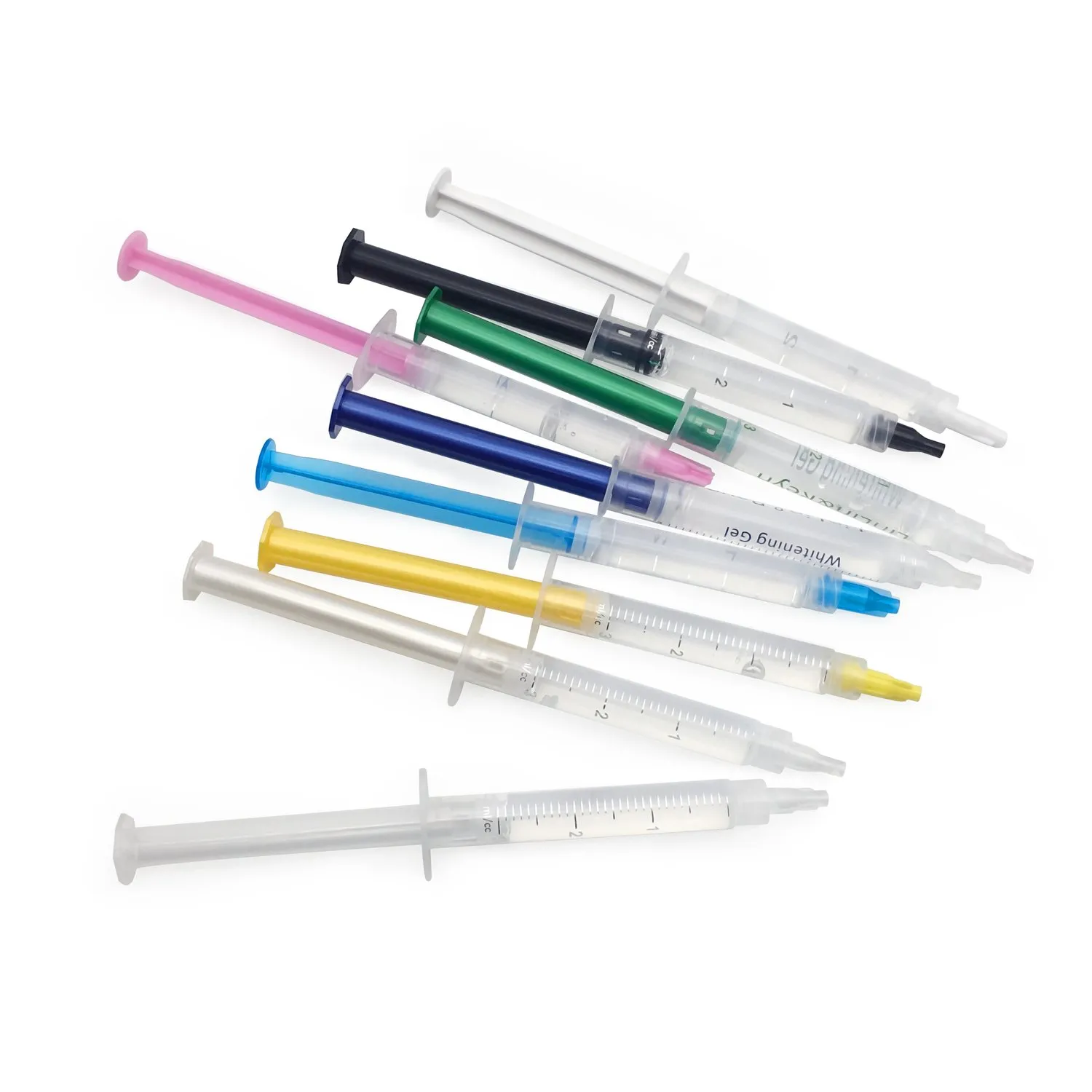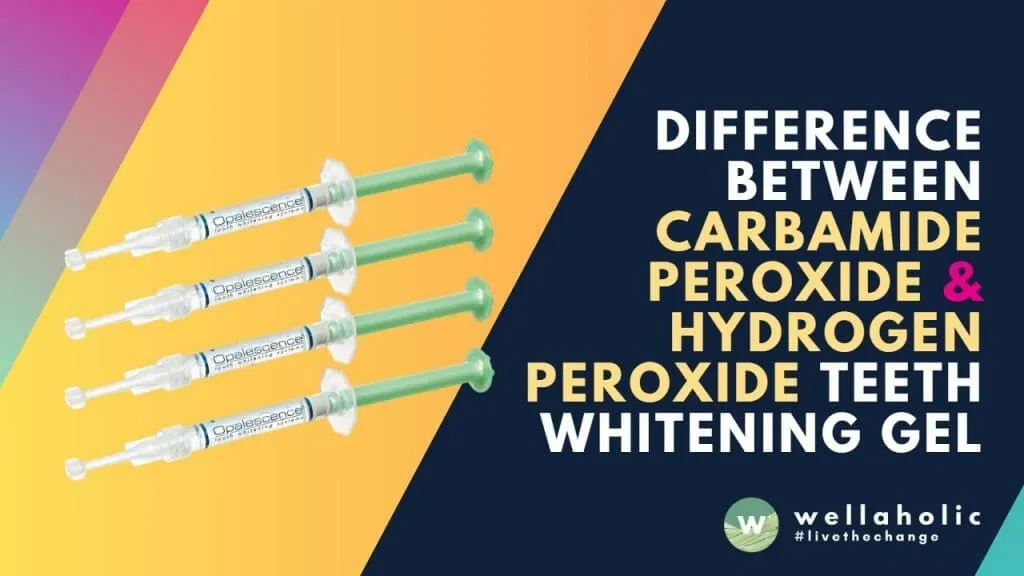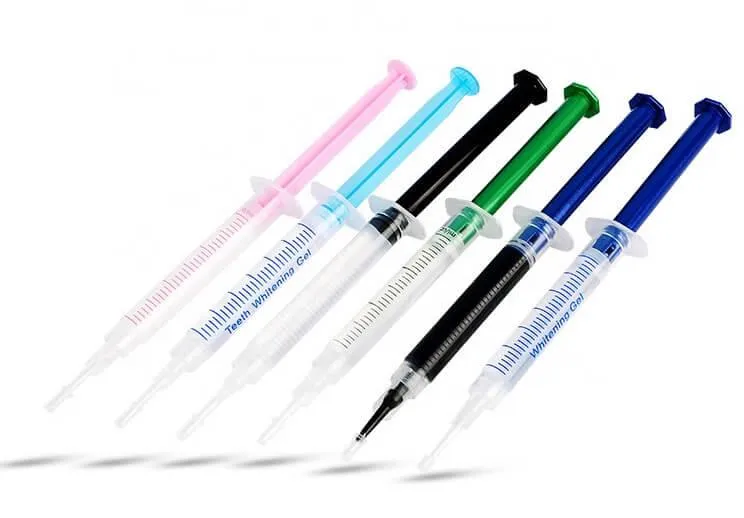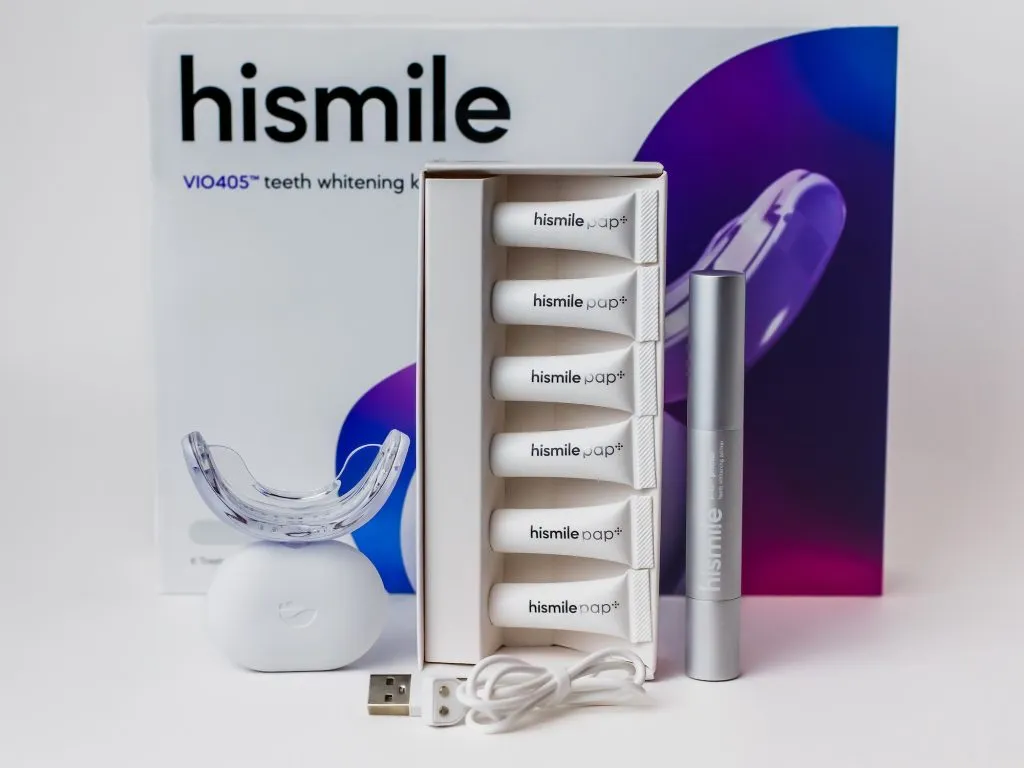What is Carbamide Peroxide
Carbamide peroxide is a chemical compound often used in teeth whitening products. It’s a stable source of hydrogen peroxide, the active whitening agent. When carbamide peroxide comes into contact with water, it breaks down into hydrogen peroxide and urea. The urea acts as a stabilizer and also helps to release the hydrogen peroxide slowly, which can reduce tooth sensitivity. It’s commonly found in take-home whitening kits prescribed by dentists. The concentration of carbamide peroxide in these kits can vary, allowing for customized treatment plans based on individual needs and sensitivity levels. Understanding carbamide peroxide is the first step in deciding which teeth whitening treatment will work best for you.
How Carbamide Peroxide Works
Carbamide peroxide whitens teeth through oxidation. The hydrogen peroxide released from carbamide peroxide penetrates the enamel and dentin, breaking down the stain molecules inside the teeth. This process effectively lightens the color of the teeth. The longer the carbamide peroxide is in contact with the teeth, the more pronounced the whitening effect. The concentration of the solution and the duration of the treatment influence the final result. This is why dental professionals often provide instructions on how long to use carbamide peroxide-based products. The slow release of hydrogen peroxide from carbamide peroxide makes it gentler on the teeth, which can reduce the chances of sensitivity, but it requires longer application periods to achieve the desired whitening effect.
Carbamide Peroxide Benefits

Carbamide peroxide offers several advantages for teeth whitening. Its slow-release formulation can reduce tooth sensitivity, a common side effect of teeth whitening treatments. It provides consistent whitening over the duration of the treatment, making it reliable for achieving noticeable results. Carbamide peroxide is versatile, suitable for both at-home and in-office whitening treatments. This flexibility allows individuals to choose a treatment that suits their lifestyle and preferences. Prescribed by dentists, carbamide peroxide allows for professional guidance and supervision, ensuring safe and effective teeth whitening. Many users appreciate that it can be custom-fitted trays that ensure even distribution and direct contact with the teeth, leading to optimal whitening results.
Carbamide Peroxide Potential Side Effects
While generally safe, carbamide peroxide can cause some side effects. Tooth sensitivity is a common issue, often temporary, which may lead to discomfort. Gum irritation or inflammation can occur if the whitening agent comes into contact with the soft tissues of the mouth. Some individuals may experience mild throat irritation or an upset stomach if they accidentally swallow some of the product. These side effects are usually mild and resolve once the treatment is complete. Following the dentist’s instructions carefully and using a lower concentration of carbamide peroxide can help minimize these effects. It’s important to consult a dentist if side effects persist or worsen.
What is Hydrogen Peroxide
Hydrogen peroxide is the primary active ingredient in many teeth whitening products. It’s a strong oxidizing agent that breaks down stain molecules within the tooth enamel. Available in various concentrations, hydrogen peroxide is the active whitening agent used in professional dental treatments and over-the-counter whitening products. Hydrogen peroxide is often used in higher concentrations in professional settings, providing rapid whitening results. The effectiveness of hydrogen peroxide depends on its concentration and the duration of application. Understanding the role of hydrogen peroxide is key to understanding how teeth whitening works.
How Hydrogen Peroxide Works

Hydrogen peroxide works by penetrating the tooth enamel and reaching the dentin layer, where it reacts with the stained organic molecules. This chemical reaction breaks the bonds that hold these stain molecules together, causing them to become smaller and less concentrated. This process results in a lighter, brighter appearance for the teeth. The speed and intensity of the whitening depend on the concentration of hydrogen peroxide and the application time. High concentrations used in professional settings can produce dramatic results in a single session. In contrast, lower concentrations in at-home products offer a gradual whitening effect. The effectiveness of hydrogen peroxide can vary depending on the type and severity of stains.
Hydrogen Peroxide Benefits
Hydrogen peroxide offers several advantages for teeth whitening. It provides fast and effective results, especially with professional treatments. It can remove both intrinsic and extrinsic stains, leading to a brighter smile. The versatility of hydrogen peroxide allows for use in various whitening methods, including gels, strips, and professional treatments. It’s a cost-effective solution, particularly when using over-the-counter products. The immediate results can boost confidence and provide a more youthful appearance. Hydrogen peroxide is also effective in removing stains caused by coffee, tea, tobacco, and other common sources, making it a popular choice for teeth whitening.
Hydrogen Peroxide Potential Side Effects
Hydrogen peroxide, while effective, can cause side effects. Tooth sensitivity is a common complaint, often occurring during and after treatment. Gum irritation and inflammation can occur if the product comes into contact with the gums. Some individuals may experience mild throat irritation or an upset stomach if they accidentally swallow the product. High concentrations of hydrogen peroxide can increase the risk of these side effects. The level of side effects is usually related to the concentration of hydrogen peroxide. Following the instructions carefully and using a lower concentration can help minimize these effects. It’s essential to consult with a dentist if any side effects persist or worsen.
Carbamide Peroxide vs Hydrogen Peroxide Efficacy

Both carbamide peroxide and hydrogen peroxide are effective teeth whitening agents. Hydrogen peroxide typically provides quicker results, especially at higher concentrations used in professional settings. Carbamide peroxide is slower-acting but gentler due to its breakdown into hydrogen peroxide over time. The efficacy depends on the concentration and application time. Professional treatments often use higher concentrations of hydrogen peroxide for immediate results. At-home treatments, using lower concentrations of either agent, provide gradual whitening. The choice between the two often depends on the desired speed of results and the individual’s sensitivity level. Both can effectively lighten the teeth, but the timeframe and user experience may vary.
Carbamide Peroxide vs Hydrogen Peroxide Application Methods
Carbamide peroxide is typically used in take-home whitening kits, often in custom-fitted trays. These trays are worn for a specific duration each day or night, as directed by a dentist. Hydrogen peroxide is found in various application methods. Professional treatments use higher-concentration gels applied directly to the teeth. At-home treatments include whitening strips, toothpastes, and mouthwashes. The choice of application method depends on the concentration of the whitening agent, the desired speed of results, and individual preferences. Professional methods offer immediate results, while at-home methods provide more gradual whitening. Using the correct method ensures effective and safe whitening.
Carbamide Peroxide vs Hydrogen Peroxide Cost
The cost of teeth whitening treatments varies based on the method used. Professional treatments using hydrogen peroxide tend to be the most expensive, but they offer immediate results. Take-home kits with carbamide peroxide prescribed by a dentist are generally less expensive than in-office treatments. Over-the-counter products, such as whitening strips or toothpastes with hydrogen peroxide, are the most cost-effective option. The cost depends on the concentration of the active ingredient, the duration of the treatment, and the specific product. The long-term cost-effectiveness of teeth whitening involves considering the maintenance and touch-up treatments needed to sustain the results.
Carbamide Peroxide vs Hydrogen Peroxide Sensitivity

Tooth sensitivity is a common side effect of teeth whitening. Carbamide peroxide, due to its slower release of hydrogen peroxide, tends to cause less sensitivity than higher concentrations of hydrogen peroxide. Sensitivity levels also vary depending on the individual’s enamel thickness and overall oral health. Using desensitizing toothpaste before and during treatment can help reduce sensitivity. Some people find that using lower concentrations or shorter treatment times minimizes discomfort. It’s essential to consult a dentist if sensitivity persists or becomes severe. The goal is to achieve whitening while minimizing discomfort and ensuring long-term oral health.
Carbamide Peroxide vs Hydrogen Peroxide Professional vs OTC
Professional teeth whitening, typically using hydrogen peroxide, offers the most rapid results under dental supervision. Dentists can use higher concentrations and ensure the safe application of the product. Over-the-counter (OTC) products offer convenience and affordability. These OTC products, often using lower concentrations of hydrogen peroxide, provide a more gradual whitening effect. Professional treatments are ideal for dramatic results, while OTC products are suitable for maintenance or mild discoloration. Consulting a dentist before any teeth whitening treatment ensures proper guidance and minimizes risks. The choice between professional and OTC options should consider the individual’s needs, budget, and desired outcomes.
How to Choose the Right Whitening Agent
Choosing the right whitening agent depends on several factors. Consider the desired speed of results, with hydrogen peroxide offering faster whitening. Assess your tooth sensitivity, with carbamide peroxide often being gentler. Evaluate your budget, as professional treatments are generally more expensive. Always consult with a dentist for personalized advice and to rule out any underlying dental issues. Consider the severity of the stains and the desired shade of whiteness. Take into account your lifestyle and ability to commit to a specific treatment regimen. The best choice balances effectiveness, safety, and convenience, ensuring a brighter, healthier smile. Consult a dentist to determine your best teeth whitening method.
